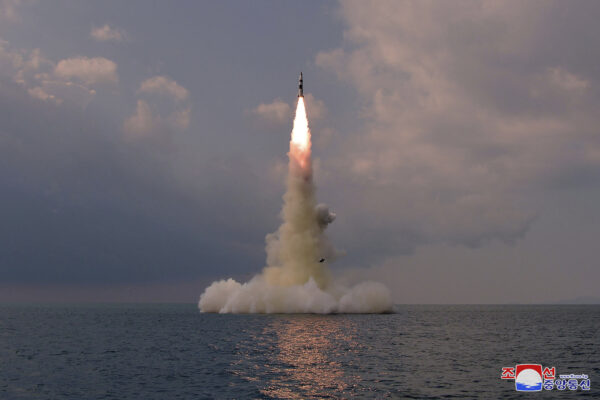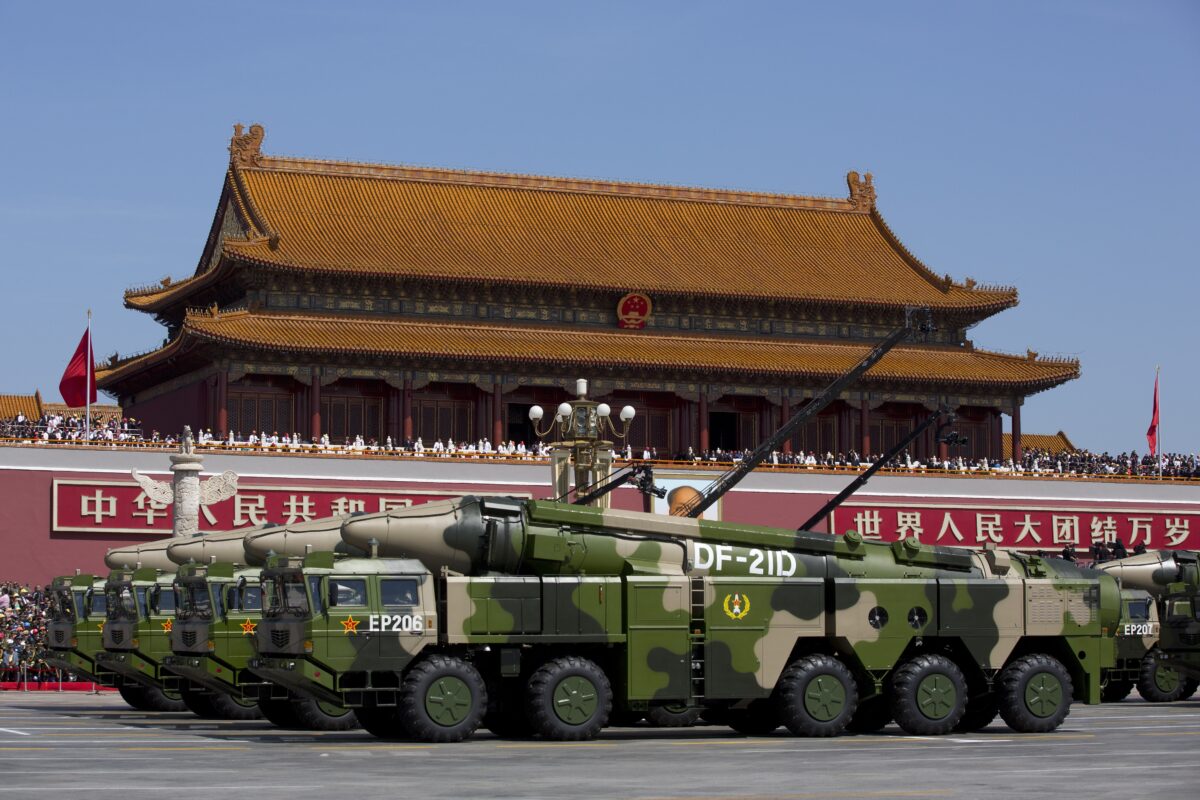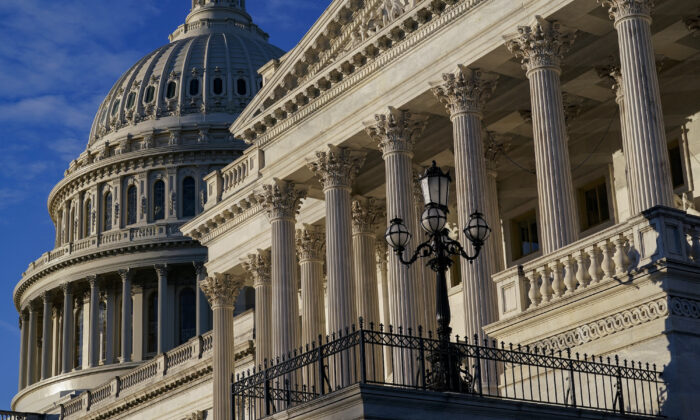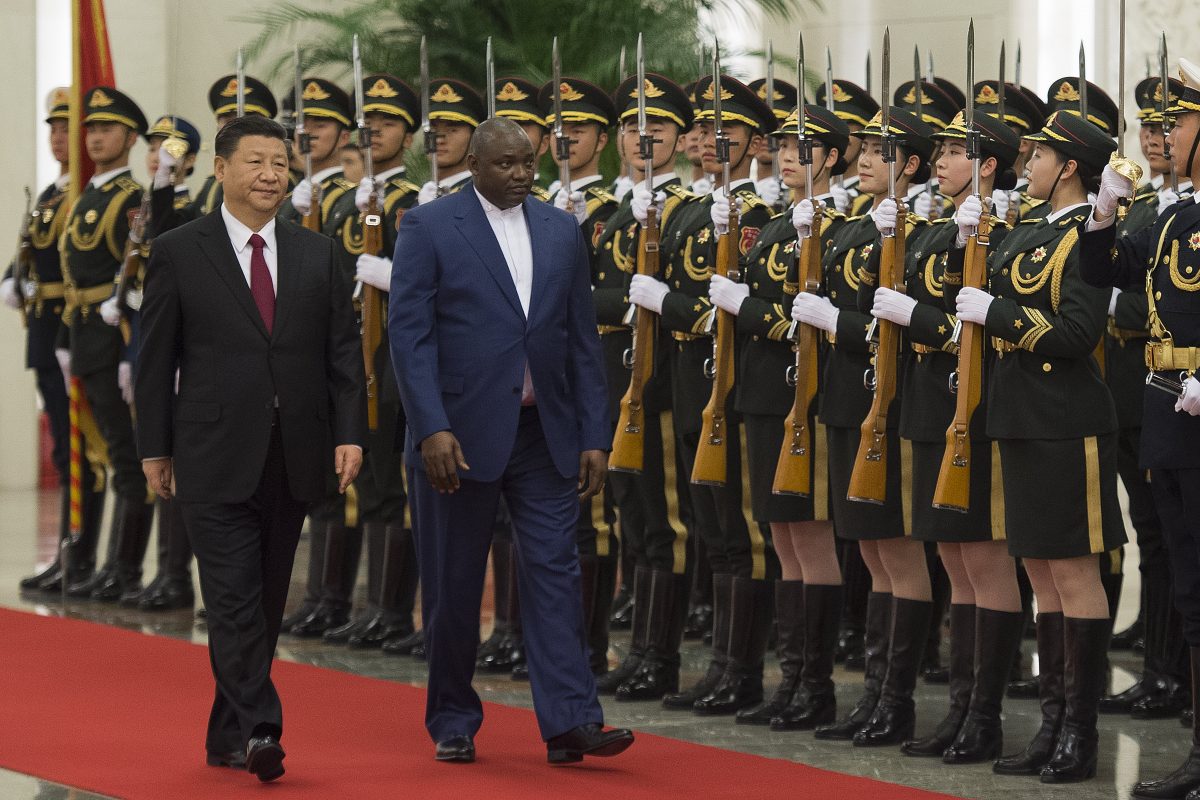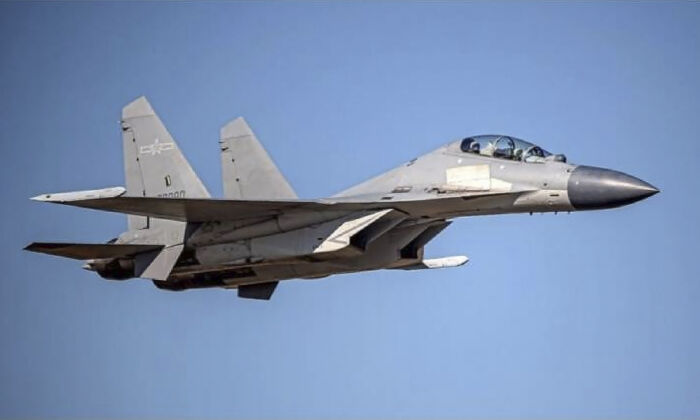Home Chapters Audio Page Video Page PDF Page Downloads Podcasts
Chapter Eighteen: The Chinese Communist Party’s Global Ambitions(Part I)
https://mp3mp4pdf.net/media/h18a.mp3
Table of ContentsIntroduction
1. The Chinese Communist Party’s Ambition to Replace the United States and Dominate the World
a. The CCP Has Always Aimed for World Domination
b. World Domination Requires Defeating the United States
c. The CCP Has a Multi-Pronged Strategy to Subvert and Contain the United States
d. The CCP Incites Anti-US Hatred to Prepare for War With America
e. The CCP No Longer Conceals Its Intentions in the Sino-US Relationship
2. Communist China’s Strategies for World Domination
a. One Belt, One Road Initiative Is Territorial Expansion Masked as Globalization
b. The CCP’s Great Periphery Strategy Aims to Exclude the US From the Asia-Pacific Region
c. Divide and Conquer in Europe Serves to Create a Split With the United States
d. The CCP Exports the ‘Chinese Model’ to Colonize Africa
e. Advancing Into Latin America Encroaches on America’s Backyard
f. Communist China Flaunts Its Military Ambitions
References
Introduction
The beginning of the twentieth century saw the Soviet communists seize power in Russia through violent force. The success of this revolution, in turn, paved the way for the communist specter’s primary actor — the Chinese Communist Party.
The CCP was established in 1921 by agents of the Far Eastern branch of the Communist International. Over the several decades that followed, the Soviet Union played a major role on the world stage, confronting the Western democratic camp in the Cold War. Westerners took the Soviet Union and its satellite communist regimes in Eastern Europe to be the archetypical communist adversary. Meanwhile, the CCP regime had ample time for its establishment and maturation.
The Soviet Union collapsed in 1991, leaving the CCP regime alone on the world stage. Communist China took a new, non-confrontational approach, enticing the rest of the world to engage with its capitalist market economy while retaining a totalitarian political system. Therefore, many Western scholars, entrepreneurs, and politicians did not regard the CCP as a communist party, but rather considered it a variant at most .
This could not be further from the truth. The CCP has brought the defining characteristics of communist ideology — deceit, malice, and struggle — to the apex, creating a regime that employs the most pernicious and insidious methods of political intrigue developed over thousands of years of human history. The CCP seduces people with profits, controls them with power, and deceives them with lies. It has cultivated its demonic technique to the point of mastery.
China is home to five thousand years of history and a splendid traditional heritage, which have earned that ancient land and its people respect and admiration from people around the world. The CCP has capitalized on these positive sentiments. After seizing power and taking the Chinese people captive, it muddled the concepts of the Chinese nation and the CCP regime. It presented its ambitions under the camouflage of China’s “peaceful rise,” making it difficult for the international community to understand its true motives.
But the essential nature of the CCP has never changed. The Party’s strategy of economic engagement is simply to use the “nutrition of the capitalist body” [1] to strengthen its own socialist body, to stabilize its rule, and realize its ambitions, rather than to enable China to see true prosperity and strength. In practice, its methods disregard basic moral ethics and universal values.
The countries that mankind has founded exist on the basis of their founders’ wisdom and faith in the Divine. Human society must follow the standards of conduct laid down by the Creator: to maintain high moral character, protect the right to private property, and adhere to universal values. The economic development of a normal society needs to be supported by corresponding moral standards.
But the CCP’s Party-state has followed a diametrically opposite path, creating a fast-rising economic abomination that has encouraged severe moral degeneracy. The evil specter’s motivation for arranging China’s “economic miracle” is simple: Without economic strength, the CCP regime would have no persuasive influence with which to dictate its terms to the world. These arrangements are not to benefit China or the Chinese, but to play on people’s worship of money and wealth so that the world will align with the CCP in economic cooperation and international affairs.
Internally, the Communist Party rules through tyranny and the most ruthless aspects of the capitalist system. It rewards evil and and punishes good, making the worst individuals into society’s most successful. Its policies magnify the evil side of human nature, using atheism to create a state of utter degeneracy in which people have no moral qualms.
When operating abroad, the CCP regime advocates the ideology of “Chinese characteristics,” meaning communism, and offers powerful economic incentives as a lure to have the people of the free world let down their guard, abandon moral principle, and turn a blind eye to the CCP’s vast abuses of human rights and its persecution of religion. Many politicians and corporations in Western countries have betrayed their values and compromised themselves in the face of profit, aligning themselves with the CCP’s practices.
Western countries hope they can help the CCP make a peaceful transformation, but while China has indeed undergone a degree of superficial modernization and westernization, the Party never changed its underlying nature. Over the past few decades, the practical result of engagement has seen the CCP successfully and peacefully undermine the moral obligations of the United States and corrupt the public will.
The CCP is the main arm of communism and thus the greatest threat worldwide. The communist specter’s aim in strengthening the global power of the CCP is to spread its poison to all corners of the earth and ultimately to have people betray tradition and the Divine. Even if the Party’s schemes for world domination are not directly successful, it will still have achieved the underlying purpose: to part people from their moral values. It does this by tempting people with economic interests, manipulating them with financial traps, infiltrating their political systems, intimidating them with military force, and confusing them with its propaganda.
Faced with such great danger, we must carefully examine the CCP regime’s ambition, strategy, tactics, and goals.
1. The Chinese Communist Party’s Ambition to Replace the US and Dominate the World
a. The CCP Has Always Aimed for World Domination
The CCP is not satisfied with being a regional power. It wants to control the world. This is determined by the Party’s inbuilt characteristic of tyranny. By its very nature, the Communist Party opposes heaven, earth, and tradition; it resorts to violence to smash the “old world” and aims to destroy all states, nations, and classes with the feigned goal of “liberating all humanity.” Its unchanging mission is one of constant expansion until the world is united under communist ideology. Its doctrines and practice are by definition globalist.
But because traditional culture was once quite powerful, communism has at times had to adopt a gradual and roundabout approach. In the Soviet Union, Stalin claimed the need for “socialism in one country;” more recently, the CCP has adopted “socialism with Chinese characteristics.”
Unlike the political parties that share power or hold power by rotation in Western democracies, the CCP has uncontested authority. It sets its strategic goals in the scope of decades or centuries. A few years after the Party established itself in 1949, it rolled out the slogan “surpass Britain and catch up to America” that prefaced the Great Leap Forward. Later, owing to unfavorable domestic and international situations, the CCP assumed a low profile for decades.
After the Tiananmen Massacre, the international community boycotted the Chinese regime. In response, the Party evaluated the situation and concluded that it was still unable to compete directly with the United States. Therefore, it took the path of hiding its strengths and biding its time, rather than attempting to take the lead on the international stage. This was not because the CCP had changed its goals, but because it adopts different strategies according to the circumstances in its struggle to ultimately establish world hegemony.
It can be said that the communist specter used the ancient Chinese strategic feint of “openly repairing the plank roads while secretly advancing via the hidden route of Chencang.” The first communist superpower was the Soviet Union, but its ultimate role ended up being to aid the rise and maturation of the Chinese communist regime.
b. World Domination Requires Defeating the United States
Since World War I, the United States has been the most powerful country on earth and serves to maintain international order. Any country that wants to overturn this order must bring down the United States, so in terms of overall strategic considerations, America is the CCP’s main enemy. This has been the case for decades, and the Party has never stopped preparing for an all-out offensive against the United States.
In his book The Hundred-Year Marathon: China’s Secret Strategy to Replace America as the Global Superpower, Michael Pillsbury wrote that China has a long-term strategy to subvert the U.S.-led world economic and political order and to replace it with communism by 2049, the one-hundredth anniversary of the Communist Party’s rise to power in China. Pillsbury notes that in the TV series Silent Contest, produced by the National Defense University of China, the ambition to compete with the United States is laid out clearly: The CCP’s process of realizing its “great cause” of dominating the world “will inevitably run into constant wear-and-tear and struggle with the U.S. hegemonic system.” “It is a centennial contest, not to be shifted by the human will.” [2]
The CCP’s global strategy is centered on countering the United States. Arthur Waldron, a professor at the University of Pennsylvania and a China expert, stated at a Senate hearing in 2004 that the Chinese People’s Liberation Army is the only army in the world that is dedicated for anti-U.S. operations. [3] In fact, apart from the PLA, most of the CCP’s diplomatic relations and international activities have the United States as their direct or indirect target.
c. The CCP Has a Multi-Pronged Strategy to Subvert and Contain the United States
The CCP has taken a comprehensive approach toward succeeding in its attempt to dominate the world. In ideology, it competes with the United States and other countries where there is freedom and democracy. It uses forced technology transfers and intellectual-property theft to close the tech gap and boost its economic confidence. Militarily, it engages in a silent rivalry against the United States by means of asymmetrical and “unrestricted warfare” in places like the South China Sea. It backs North Korea, Iran, and other rogue regimes to impede the United States and NATO.
In diplomacy, the CCP regime has promoted its “great peripheral strategy” and the One Belt, One Road plan. It has very quickly expanded its international influence, including neighboring countries as well as countries in Europe, Africa, Oceania, and Latin America, in an attempt to build an international coalition, develop a Chinese-led sphere, and isolate the United States.
The CCP has multiple methods to accomplish these goals. It established the Shanghai Cooperation Organization in 1996, the Asian Infrastructure Investment Bank in 2015, and the “16+1” cooperation with Central and Eastern European countries in 2012. It cooperates keenly as part of the five BRICS countries (Brazil, Russia, India, China, and South Africa), and vigorously promotes internationalization of its currency. It seeks to control the formulation of industrial standards (such as those used for the proposed 5G cellular networks) and to dominate public discourse.
The CCP regime has taken advantage of the democracy and freedom of the press that exist in the United States and other Western countries to carry out united front operations, spread propaganda, and engage in espionage. This is its attempt to manipulate the United States as much as possible and impose bloodless change from within.
Using these tactics, CCP agents bribe U.S. government officials, congressmen, diplomats, and retired military officers. The Party uses economic interests to guide American capitalists to lobby for the Chinese communists and to influence U.S. policy on China. It forces high-tech companies to cooperate with the CCP’s internet censorship and Great Firewall, coerces and incentivizes many in the overseas Chinese communities to serve as fifth columnists, and infiltrates Western think tanks and academic departments. It manipulates these institutions into exercising self-censorship on sensitive topics, effectively adopting the stand of the Communist Party. Chinese companies, which are controlled or influenced by the CCP, have been investing heavily in Hollywood.
While developing its influence in various countries to envelop and contain the United States on one hand, on the other, it establishes hidden strongholds on American soil so that it can undermine the United States from within. It has built an extensive network of agents and has fostered splits in U.S. society, posing a serious internal threat.
d. The CCP Incites Anti-U.S. Hatred to Prepare for War With America
The CCP’s ideology runs on hatred. The patriotism it promotes entails hating Japan, hating Taiwan, hating Tibetans, hating the ethnic minorities of Xinjiang, hating religious believers, hating dissidents, and most importantly, hating the United States. There is a saying among Chinese netizens: “For small problems, blame Japan, and for big ones, blame the United States.” This means that by inciting hatred against foreign foes, the Party helps smooth over public outrage during a crisis.
Before the Chinese communists seized power, they repeatedly praised the United States for its friendship with China and for the American democratic system. However, after the CCP set up its regime, it immediately took advantage of the suffering China had undergone in modern history, as well as the eagerness of the people to have a strong nation. The CCP painted itself as China’s savior by stoking hatred against America and other foreign countries.
In fact, the CCP does not care about the lives and deaths of the Chinese people, nor does it care about China’s territorial integrity or the sustainable long-term development of the Chinese nation. It is impossible to describe the evilness of how the CCP has persecuted the Chinese people, betrayed China’s sovereignty, destroyed Chinese morality and traditional culture, and squandered China’s future.
(Length limited, to read more visit here)







 Reply With Quote
Reply With Quote










